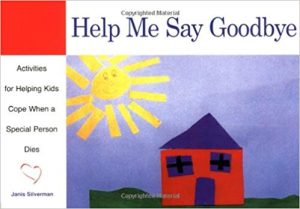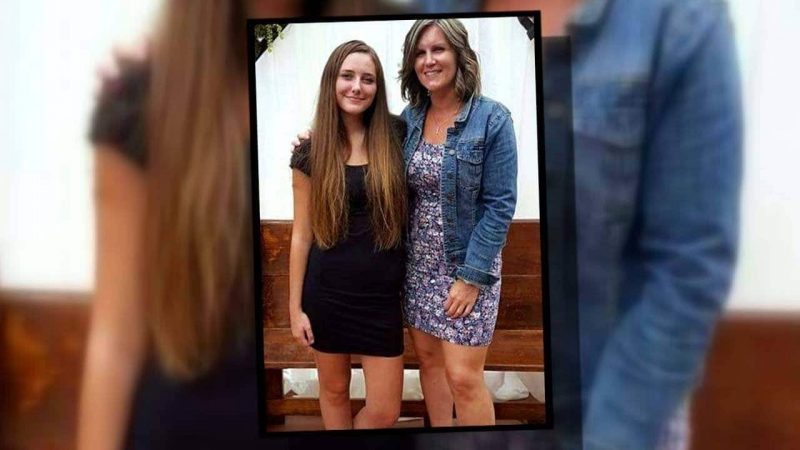Facing death is one of life’s biggest challenges. Inevitably, many children encounter experiences with death – ranging from the loss of a beloved pet to the loss of a beloved parent. How can parents help their child deal with death and loss?
Consider the following tips:
Children Handle Death Differently from Adults
Contents
Your child may act like everything is fine – he or she is playing with friends, chatting online, engaging in hobbies and after-school activities; everything looks “normal.” This is just the way children deal with trauma.
Traumatic events like life-threatening illness and death can be so overwhelming for children that they sometimes bury it deep inside themselves where it is locked away for later review – often decades later. Meanwhile, they carry on with life. Unfortunately, it takes a lot of psychic energy to keep deep feelings of fear, loss, and grief buried inside. The child may become depressed, anxious, poorly behaved, or highly distracted (see below). It’s much better if some adult can help the child deal with the feelings and let them out, little by little, so that there is no “pressure cooker” inside. There are depression hotlines that can help.
Types of Reactions to Loss
Some children react to death by “acting out.” This means that their behavior deteriorates. Again, they may seem to be unaffected by the death in that they’re not crying, they’re not acting sad or depressed, and they’re not wanting to talk about the death. However, they are getting into plenty of mischief at home and school. If you notice this sort of behavioral change in your child, then professional counseling can help. Although the counselor may recommend cutting the child some slack for a short time, make sure that you do so ONLY for a short time (i.e. a couple of weeks). It is important to impose regular standards and normal structure for the child, including reasonable limits on behavior. Accept all of the child’s emotions, but not any of the child’s destructive, disrespectful, or dangerous behaviors. Just because a child is distraught it is not O.K. for him or her to swear at people destroy property or disregard the rules of the house. As parents step in to gain control of the situation, the child will begin to feel more in control as well. The limits can be reassuring, communicating that normal life does go on and the parents themselves are O.K. enough to do normal parenting. All of this helps the child to return to a normal baseline.
Some kids become very anxious after death, suffering from bad dreams or nightmares, having trouble sleeping, developing fears of the future and phobias in the present, and obsessing about the death, the dying process or the person who died. If your child develops intense fears that don’t clear up within a month, seek professional help. Sometimes these signs may be symptoms of a post-traumatic stress reaction that requires specialized treatment.
Children May Become Withdrawn After a Loss
Instead of acting OUT, they act IN – becoming sad and isolated. It’s fine to allow children some quiet time, a time in which to lick their wounds and slowly recover. However, if a child is still turning away from life several months after a loss, seek a professional assessment. It may be that counseling can help speed the mourning process along and help the child return to his or her life.
Talk about It
Very often, kids will not initiate conversations about the loss. This does not mean that they don’t need to talk. It often means they don’t know HOW to talk about it or they’re afraid of causing the parent upset. Parents, therefore, need to try to initiate talk. If the child doesn’t want to join in, then give the child space. However, some kids will be very happy to have the input of their parents. You can talk a little (not too much, so as not to overwhelm the child) about your sadness and loss, but be sure to show interest in the child’s feelings. “We’re all sad and missing Grandma. I used to talk to her every day and now I miss that. How are you doing with it? It must be hard for you too.” This sort of sentence gives the child an opening. Some kids will take the opportunity to express anger. “Why did she have to die? I want her to be here with us!” Acknowledge the child’s pain BEFORE answering questions. “Yes, we’re all upset about it. We all want her here. I know how much you miss her. No one knows why people have to die – it’s all part of God’s plan. For some reason we don’t understand, we can’t live forever here on Earth. But when the body dies, the soul still lives and in that sense, we never die… (explain death in whatever way you understand it).”
When you support your child through a grieving experience, your child learns that he or she can turn to others in times of crisis. This is a very important life lesson that helps to stress-proof your youngster.
Other Healing Strategies
Some children will cope better by drawing their feelings. There are art therapists who can help your child process grief and loss through artwork and this can be a very gentle and helpful process. Or, just have drawing time a couple of times a week and ask your child to draw his or her feelings on a blank page. It doesn’t matter whether the picture is “nice” or not – it is simply a channel for the expression of emotion.
Making a “memory book” of the lost person or pet can also be a helpful exercise. You can help the younger child and the older child or teen can do it independently. Stories, pictures, thoughts, photos – anything about the person or pet may be put in the pages of this special book designed to honor the departed one. It is common to cry and laugh while making such a book – many feelings are released. The exercise is very healing and helps the mourner move forward, taking the positive aspects of the loved one forward with him or her.
 Be Aware of Your Impact
Be Aware of Your Impact
Although grieving adults are often in too much pain to parent well, it is important to remember that your children are always watching you. Your reactions – at least the ones they can observe – teach them a lot about life and stress management. If you are too overwhelmed to function well, show them how you access professional help or family support. Let them know by your model, that you needn’t go through pain and deep stress alone. If you are so sad that you find yourself crying all the time, let the kids know that the tears are temporary and that they are your way of letting the sadness out of your body. If you are crying in front of them for more than two or three months, get professional help. Your intense emotions can alarm your kids and give them a feeling of helpless despair. Ideally, after the first few weeks, you can cry when the kids are in school or asleep or at other appropriate times. Keep in mind that people go to work after the death of a loved one and they can refrain from crying eight hours a day when they are being paid to function well. Functioning well at home is equally important as children are sensitive to and affected by their parents’ moods.
Consider Professional Support
If your child has changes in behavior that are of concern like chronic loss of or increase in appetite, intense behavioral problems or new behavioral problems, nervous habits, bedwetting, a new set of “bad” friends, suspicious behaviors, sleep disturbances, fears, low mood, new academic problems or any other behavioral or emotional symptom that worries you, get a professional assessment. Sometimes intense stress can trigger latent mental health concerns or cause complicated grief reactions that benefit from professional help. The sooner you can help your child, the sooner your child will return to normal functioning.




